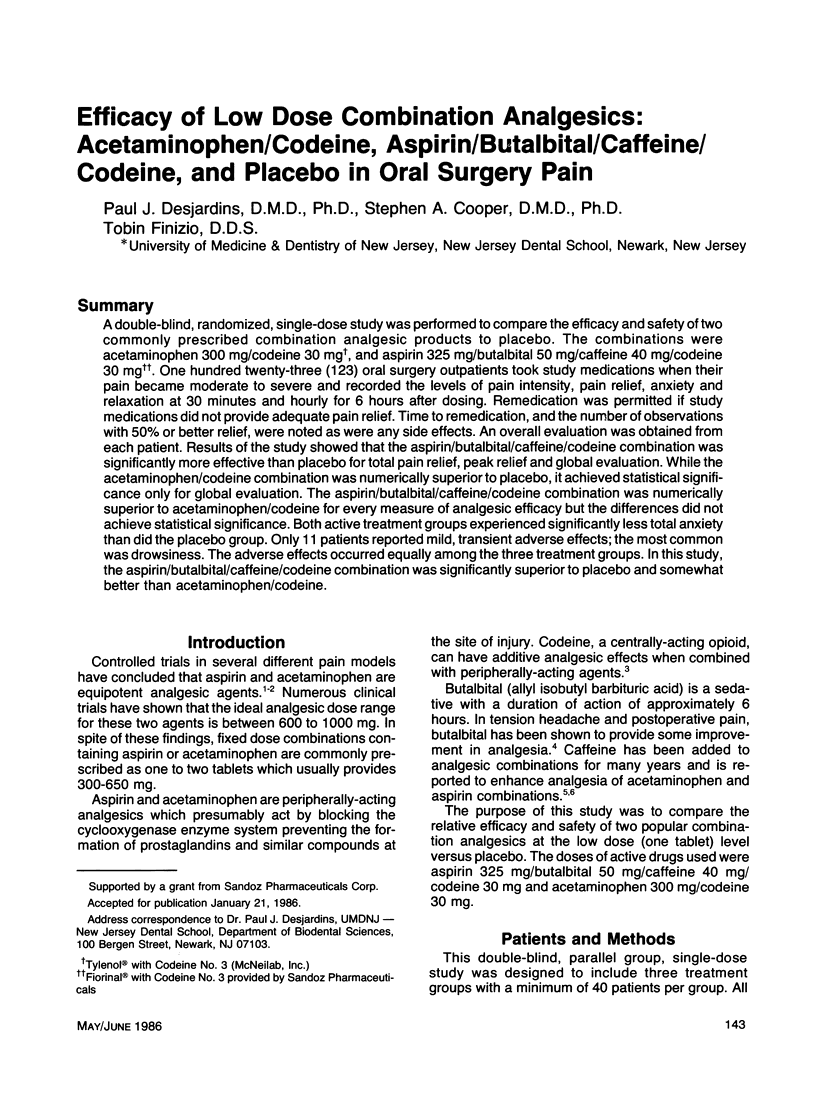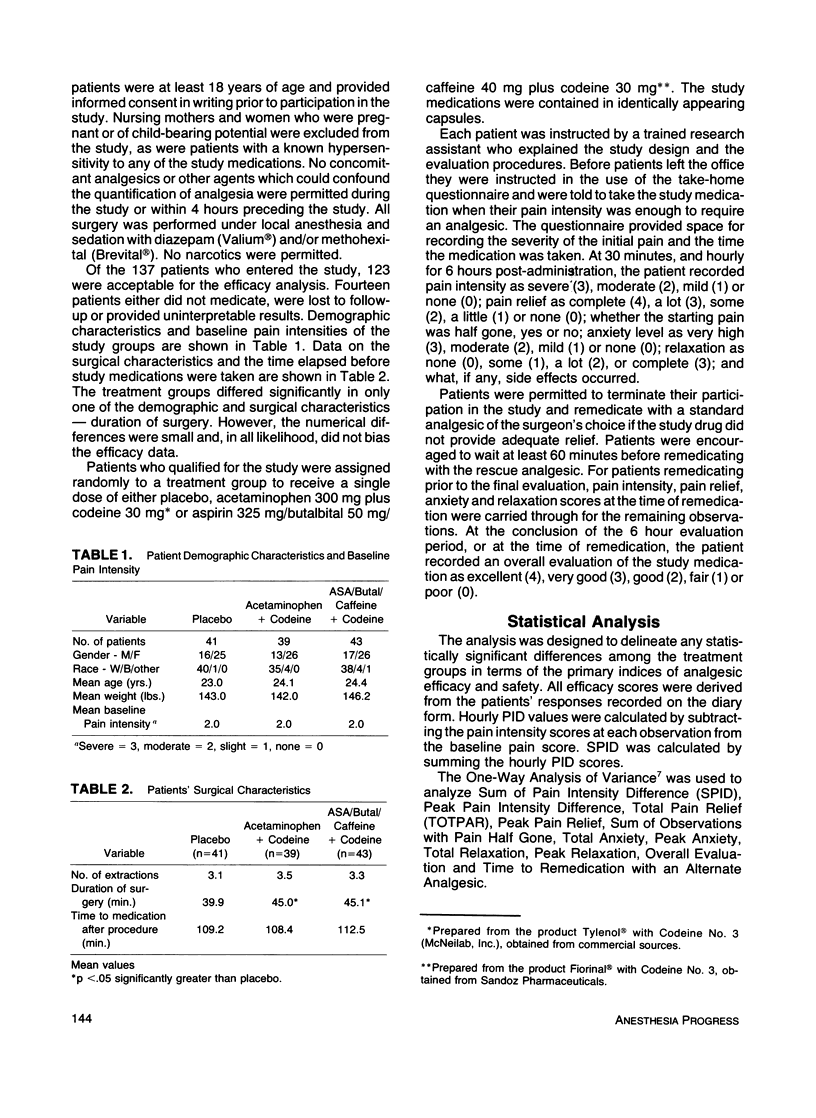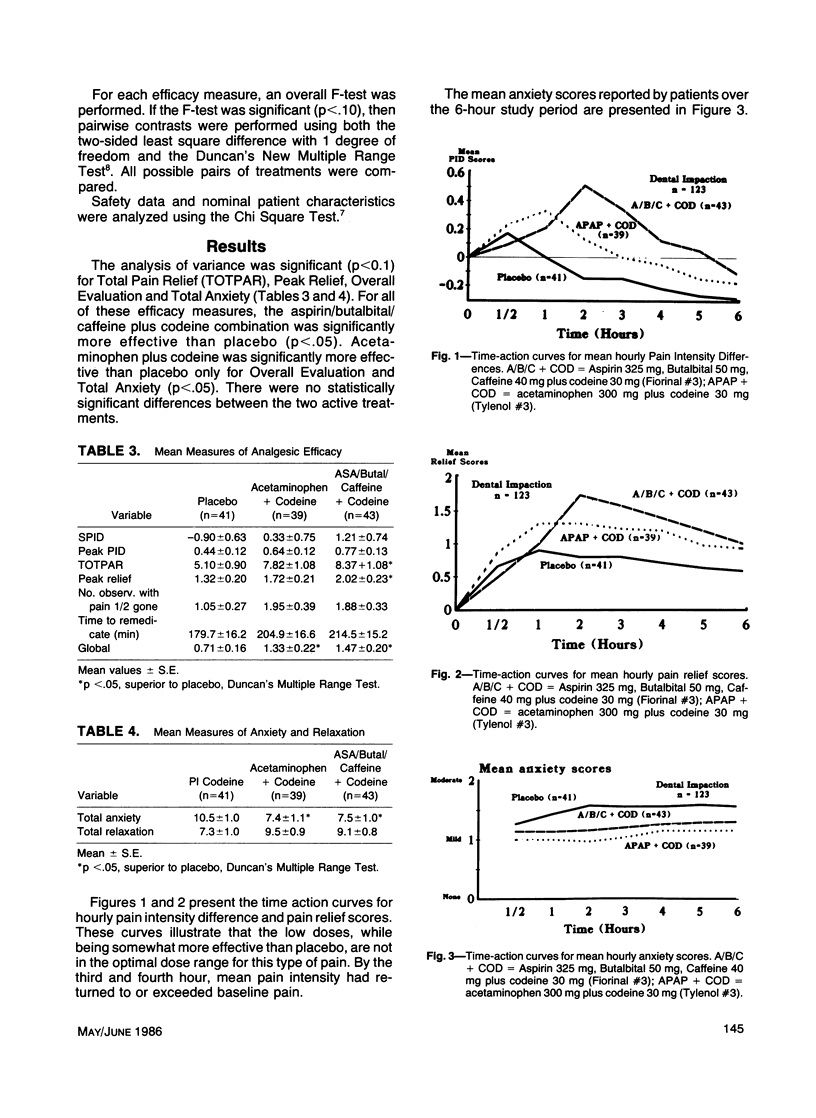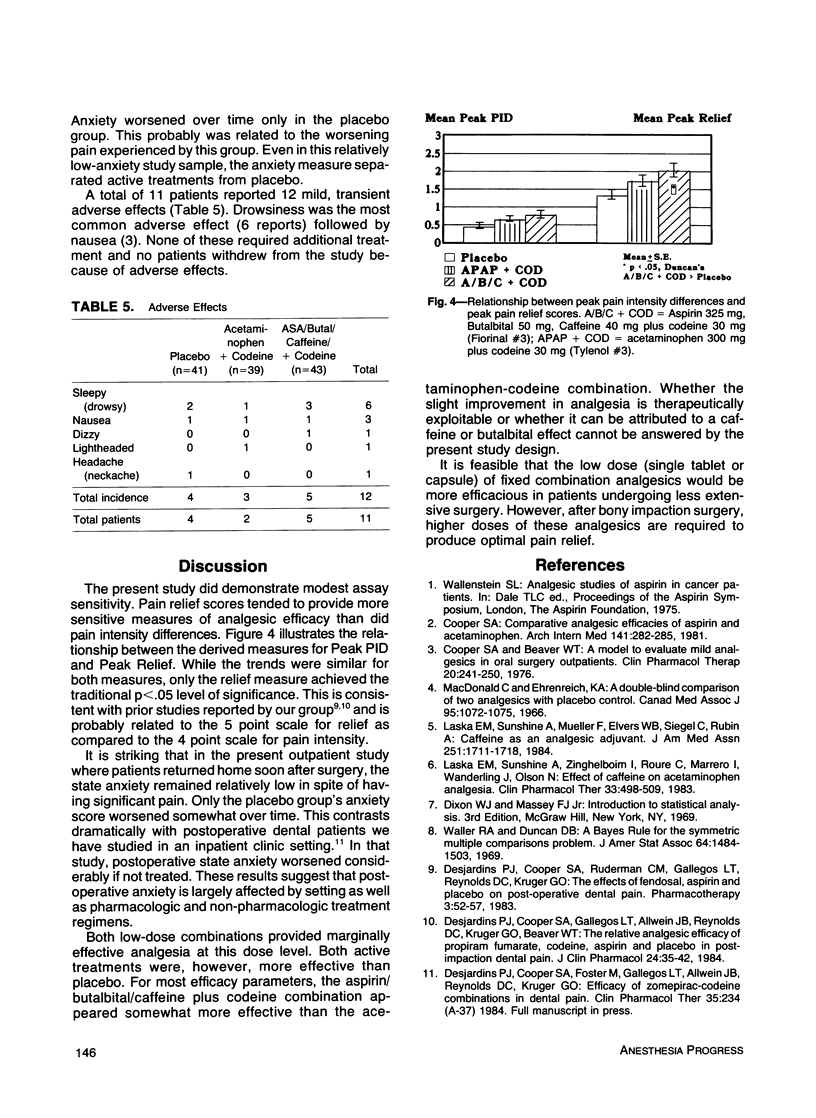Abstract
A double-blind, randomized, single-dose study was performed to compare the efficacy and safety of two commonly prescribed combination analgesic products to placebo. The combinations were acetaminophen 300 mg/codeine 30 mg†, and aspirin 325 mg/butalbital 50 mg/caffeine 40 mg/codeine 30 mg††. One hundred twenty-three (123) oral surgery outpatients took study medications when their pain became moderate to severe and recorded the levels of pain intensity, pain relief, anxiety and relaxation at 30 minutes and hourly for 6 hours after dosing. Remedication was permitted if study medications did not provide adequate pain relief. Time to remedication, and the number of observations with 50% or better relief, were noted as were any side effects. An overall evaluation was obtained from each patient. Results of the study showed that the aspirin/butalbital/caffeine/codeine combination was significantly more effective than placebo for total pain relief, peak relief and global evaluation. While the acetaminophen/codeine combination was numerically superior to placebo, it achieved statistical significance only for global evaluation. The aspirin/butalbital/caffeine/codeine combination was numerically superior to acetaminophen/codeine for every measure of analgesic efficacy but the differences did not achieve statistical significance. Both active treatment groups experienced significantly less total anxiety than did the placebo group. Only 11 patients reported mild, transient adverse effects; the most common was drowsiness. The adverse effects occurred equally among the three treatment groups. In this study, the aspirin/butalbital/caffeine/codeine combination was significantly superior to placebo and somewhat better than acetaminophen/codeine.
Full text
PDF



Selected References
These references are in PubMed. This may not be the complete list of references from this article.
- Cooper S. A., Beaver W. T. A model to evaluate mild analgesics in oral surgery outpatients. Clin Pharmacol Ther. 1976 Aug;20(2):241–250. doi: 10.1002/cpt1976202241. [DOI] [PubMed] [Google Scholar]
- Cooper S. A. Comparative analgesic efficacies of aspirin and acetaminophen. Arch Intern Med. 1981 Feb 23;141(3 Spec No):282–285. doi: 10.1001/archinte.141.3.282. [DOI] [PubMed] [Google Scholar]
- Desjardins P. J., Cooper S. A., Gallegos T. L., Allwein J. B., Reynolds D. C., Kruger G. O., Beaver W. T. The relative analgesic efficacy of propiram fumarate, codeine, aspirin, and placebo in post-impaction dental pain. J Clin Pharmacol. 1984 Jan;24(1):35–42. doi: 10.1002/j.1552-4604.1984.tb01811.x. [DOI] [PubMed] [Google Scholar]
- Desjardins P. J., Cooper S. A., Ruderman C. M., Gallegos L. T., Reynolds D. C., Kruger G. O. The effects of fendosal, aspirin and placebo on postoperative dental pain. A dose-ranging and efficacy study. Pharmacotherapy. 1983 Jan-Feb;3(1):52–57. doi: 10.1002/j.1875-9114.1983.tb04533.x. [DOI] [PubMed] [Google Scholar]
- Laska E. M., Sunshine A., Mueller F., Elvers W. B., Siegel C., Rubin A. Caffeine as an analgesic adjuvant. JAMA. 1984 Apr 6;251(13):1711–1718. [PubMed] [Google Scholar]
- Laska E. M., Sunshine A., Zighelboim I., Roure C., Marrero I., Wanderling J., Olson N. Effect of caffeine on acetaminophen analgesia. Clin Pharmacol Ther. 1983 Apr;33(4):498–509. doi: 10.1038/clpt.1983.68. [DOI] [PubMed] [Google Scholar]
- Macdonald C., Ehrenreich K. A. A double-blind comparison of two analgesics with placebo control. Can Med Assoc J. 1966 Nov 19;95(21):1072–1075. [PMC free article] [PubMed] [Google Scholar]



